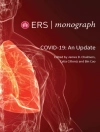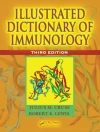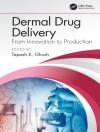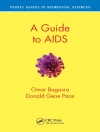This book provides readers with a comprehensive and up-to-date guide to non-invasive mechanical ventilation in palliative medicine, focusing on why and when it may be necessary. Physicians will find a practical guide to this specific context, particularly focused on pulmonary function and physiology in the elderly, and on ventilatory management in surgery and chronic stable conditions. The book provides detailed information on the rationale for invasive and non-invasive ventilation, the different modes of ventilation, indications and contraindications, prognostic factors, and outcomes. It addresses in detail the role of postoperative mechanical ventilation following various forms of surgery, and discusses key aspects of withdrawal from ventilatory support. Attention is also devoted to the use of mechanical ventilation within and beyond the ICU. The concluding part of the book focuses on important topics such as ethics, legal issues, home mechanical ventilation, drug therapy, rehabilitation and end-of-life.
Its multidisciplinary approach, bringing together contributions from international experts in different specialties, ensures that the book will be of interest to a broad range of health professionals involved in the management of older patients admitted to the ICU, including intensivists, anesthesiologists, and geriatricians.
Jadual kandungan
Part I. Pulmonary Function and Physiology in Elderly.- Chapter 1. Spontaneous Breathing Pattern.- Chapter 2. Gas Exchange and Control of Breathing in Elderly and End -of -Life Diseases.- Part II. Ventilatory Managemenrt Eidemiology and Trend Management.- Chapter 3. Acute And Acute-on-Chronic Respiratory Failure: Impact of Chronic Lung Comorbidities.- Chapter 4. Chronic Cardiac Disorders.- Chapter 5. Acute Respiratory Failure and Infections in Elderly Patients.- Chapter 6. Neurologic and Psychiatric Disorders.- Part III. Hypercapnic Respiratory Failure.- Chapter 7. Definitions, Criteria and Management of NIV for Very Old Patients with Limitations to Respiratory Care.- Chapter 8. Ventilatory Support and Oxygen Therapy in The Elderly Palliative and End-of-Life Care Patients.- Part IV. Acute Hypoxemic Respiratory Failure.- Chapter 9. NIV Application.- Chapter 10. Oxygen Therapy and Nasal High Flow Therapy.- Chapter 11. Medical Conditions.- Chapter 12. Pneumonia.- Chapter 13. Acute Chronic Insufficiency.- Chapter 14. Acute Hypoxemic Respiratory Failure in Immunocompromised Patients: the Role of Non-Invasive Ventilation and High Flow Oxygen Therapy.- Chapter 15. Acute Hypoxemic Respiratory Failure – Idiopathic Pulmonary Fibrosis.- Part V. Surgery and Chronic Stable Conditions.- Chapter 16. NIV After Cardiothoracic Surgery and Thoracic Surgery.- Chapter 17. Nocturnal NIV in COPD Patients with Prolonged Hypercapnia after Ventilatory Support for Acute Respiratory Failure.- Part VI. COMPLEMENTARY USE OF NIV.- Chapter 18. Use of NIV in Non-Surgery Procedures in Elderly (Sedation, Bronchoscopy, Gastroscopy).-Chapter 19. Use of NIV in Surgery Procedures in Elderly (Non-Invasive Surgery). Continuous Spinal Anesthesia.- Part VII. Invasive Mechanical Ventilation.- Chapter 20. Mechanical Ventilation-Specific Surgery Conditions.- Chapter 21. Extubation And Reintubation Conditions.- Chapter 22. Ventilatory Modes – PS And Other Ventilatory Options.- Part VIII. Weaning and Management.- Chapter 23. Weaning Mechanical Ventilation.- Chapter 24. Rehabilitation In Critical Illness And Palliative Care.- Chapter 25. Sedation and Analgesia in Mechanical Ventilation.- Chapter 26. Management Elderly Patients With Acute Neurologic Syndrome (Delirium Agitation).- Part IX. Discharge and Home Mechanical Ventilation.- Chapter 27. Home Discharge. Planning, Policies And Impact On Hospital Admission And Outcome.- Chapter 28. Home Mechanical Ventilation.- Chapter 29. The Role of Non-Invasive Home Mechanical Ventilation in Elderly Patients with Chronic Obstructive Pulmonary Disease.- Part X. Ventilatory Management in Outcome.- 30. Predictors of Outcome of NIV in Elder, Palliative and End-of-Life Care Patients.- Chapter 31. Prognosis Following Acute Exacerbation of COPD Treated with Non-Invasive Mechanical Ventilation.- Chapter 32. Readmission elderly Critically Patients.- Part XI. Ventilatory Management in End Life Applications.- Chapter 33. End-Of-Life Care Of Patients With Idiopathic Pulmonary Fibrosis.- Chapter 34. Hospital Organizations Management Acute Respiratory Failure.- Chapter 35. Hospital Organizations of ARF in Elderly.- Chapter 36. NIV in Palliative Medicine and End-of-Life Care: The Perspectives of Patients, Families and Clinicians.- Chapter 37. Legal Issues (Surrogacy Laws, Informed Consent).- Part XII. Ventilatory Management in Palliative Medicine.- Chapter 38. Neuromuscular Patients (Amyotrophic Lateral Sclerosis And Other Condictions).- Chapter 39. Non-Neuromuscular Patients (Kyphoscoliosis).- Chapter 40. Idiopathic Pulmonary Fibrosis.- Chapter 41. Respiratory failure and the critically ill cancer patient.- Chapter 42. Recommendations for Noninvasive ventilation on survival and quality of life.- Chapter 43. Quality of life and complications after percutaneous tracheostomy.- Chapter 44. The concept of Quality of Life in Elderly patients and advanced stages.- Chapter 45. Recommandations and consensus: European and non-European perspectives.
Mengenai Pengarang
Antonio M. Esquinas, MD, Ph D, works at the Intensive Care Unit and Non-invasive Ventilatory Unit at Hospital General Universitario Morales Meseguer, Murcia, Spain. Prior to taking up this position in January 2013, he worked at the Departments of Anesthesiology, Critical Care and Pain Medicine at Sapienza University of Rome, Italy. Dr. Esquinas is a fellow of the College of Chest Physicians and an international fellow of the American Association of Respiratory Care. He is the director of the International School of Non-invasive Mechanical Ventilation and president of the International Association of NIV and the Ibero-American Association of Bioethics in NIV. He is the author of well over 945 scientific publications, including almost 600 articles, and 47 books.
Nicola Vargas works as a geriatrician at the Geriatric and Geriatric Intensive Care Departments of the High Survey Hospital of Avellino, Italy. After graduating with honors from Naples “Federico II” University, Dr. Vargas completed his medical residency at the Institute of Gerontology and Geriatrics, University of Parma, Italy. He completed his medical residency as an intensive care physician at the Institute of Anesthesia and Intensive Care Medicine, University “Federico II”, Naples, Italy. His work mainly focuses on the field of emergency and intensive care medicine, especially geriatric intensive care. Moreover he is interested in the elderly population’s health problems. He is the author of numerous publications and meetings communications.












